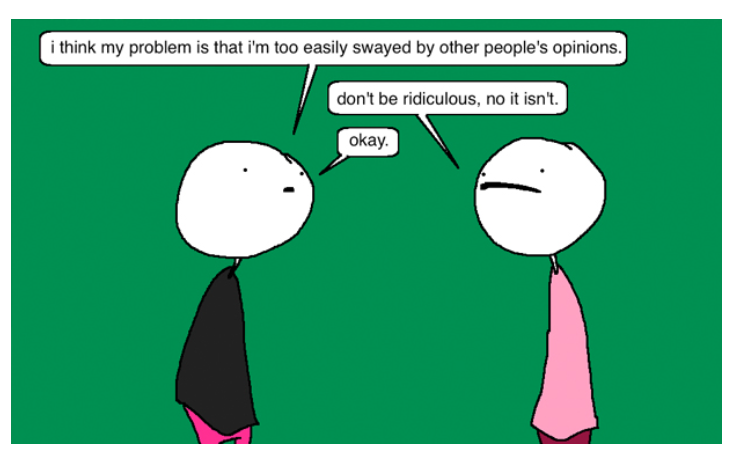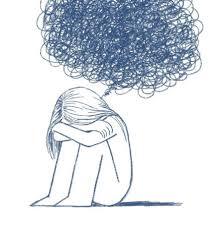Are you an emotionally volatile person? If so, you’re not alone. Emotional volatility is a common problem that can have a significant impact on our health, both mentally and physically. In this blog post, we’ll explore the definition of emotional volatility, its symptoms, and causes, as well as ways to cope with it. We’ll also discuss therapies that are available to help those who are struggling with emotional volatility.
Contents
Introduction
 Emotional volatility is a term that refers to fluctuations in our moods and emotions. These fluctuations can be sudden and drastic, and they can often leave us feeling out of control. While everyone experiences mood swings from time to time, those who are emotionally volatile may find that their moods swing more frequently and more intensely than others. This can often lead to problems in our personal and professional lives, as well as our physical health.
Emotional volatility is a term that refers to fluctuations in our moods and emotions. These fluctuations can be sudden and drastic, and they can often leave us feeling out of control. While everyone experiences mood swings from time to time, those who are emotionally volatile may find that their moods swing more frequently and more intensely than others. This can often lead to problems in our personal and professional lives, as well as our physical health.
Symptoms
Some common symptoms of emotional volatility include:
- Sudden, drastic changes in mood
- Feeling out of control or unable to manage emotions
- Intense emotions that are often disproportionate to the situation
- Difficulty concentrating or focusing
- Impulsiveness or recklessness
- Acting out in anger or aggression
- Self-destructive behaviors
Causes
There is no one single cause of emotional volatility. Instead, it is often the result of a combination of factors. Moreover, some of the most common causes include:
- Mental health disorders. Many mental health disorders, such as bipolar disorder and borderline personality disorder, are characterized by extreme swings in mood.
- Substance abuse. Drugs and alcohol can cause changes in our brain chemistry that can lead to emotional volatility.
- Stressful life events. Major life changes, such as the death of a loved one or experiencing a traumatic event, can trigger emotional volatility.
- Genetics. Emotional volatility can sometimes be passed down from our parents or other family members.
Risk Factors
Some of the most common risk factors include:
- Having a mental health disorder.
- Having a family history of mental health disorders.
- Experiencing stressful life events.
- Abusing drugs or alcohol.
Implications

Emotional volatility can often lead to problems in our personal, professional, and social lives.
Life
Personal Life
Those who are emotionally volatile may find that their mood swings interfere with their ability to maintain healthy and fulfilling relationships. For instance, they may also engage in self-destructive behaviors. Such as substance abuse, which can further damage their relationships.
Professional Life
Emotional volatility can also make it difficult to succeed in the workforce. Those who are struggling with emotional volatility may find it hard to concentrate or focus. For instance, it can lead to problems with work performance. Additionally, impulsive or reckless behavior can put them at risk of losing their job.
Social Life
Emotional volatility can also take a toll on our social lives. For instance, those who are emotionally volatile may have difficulty maintaining friendships or may find social gatherings to be overwhelming. Additionally, they may isolate themselves from others out of fear of losing control or behaving embarrassingly.
Health
Emotional Health
Emotional volatility can often lead to emotional distress. This can include feelings of anxiety, depression, or hopelessness. Additionally, those who are emotionally volatile may be at a higher risk of attempting suicide.
Physical Health
Emotional volatility can also impact our physical health. For instance, those who are struggling with emotional volatility may have difficulty sleeping, which can lead to fatigue and other health problems. Additionally, they may engage in risky behaviors. For instance, driving recklessly or engaging in unsafe sex. The same can put them at risk for accidents or sexually transmitted infections.
Mental Health
Emotional volatility can also take a toll on our mental health. For instance, those who are emotionally volatile may find that their mood swings interfere with their ability to think clearly or make decisions. Additionally, they may experience symptoms of anxiety or depression.
Coping Tips
If you’re struggling with emotional volatility, there are some things that you can do to cope. Moreover, some helpful coping tips include:
- Identifying your triggers. If you can identify what triggers your mood swings, you can often avoid or minimize them.
- Learning stress management techniques. Stress can often worsen emotional volatility, so it’s important to find ways to manage it. This may include yoga, meditation, and deep breathing exercises.
- Exercising regularly. Exercise can help to release endorphins, which can improve our mood.
- Eating a healthy diet. A healthy diet can help to stabilize our mood and energy levels.
- Getting enough sleep. Sleep is essential for our physical and mental health. Those who are emotionally volatile may need to make sure that they’re getting enough rest.
Coping Tools
If you’re struggling with emotional volatility, several coping tools can help. Some helpful coping tools include:
- A journal. Writing down your thoughts and emotions can help to identify patterns and triggers.
- A therapist. Talking to a therapist can help you to understand and manage your emotions.
- Medication. In some cases, medication may be necessary to stabilize mood.
Professional Help

If you’re struggling to cope with emotional volatility on your own, professional help may be necessary. However, there are many different types of therapies that can be helpful. For instance such as:
- Cognitive behavioral therapy. This type of therapy can help us to change the way that we think about and react to our emotions.
- Dialectical behavioral therapy. This type of therapy can help manage intense emotions and improve our relationships.
- Psychotherapy. This type of therapy can help us to understand the root causes of our emotional volatility and make positive changes in our lives.
Conclusion
If you’re struggling with emotional volatility, know that you’re not alone. Moreover, many people deal with this issue daily. While it can be difficult to cope with, there are many helpful coping tips and therapies available. So if you need help, don’t hesitate to reach out to a mental health professional. Furthermore, you can manage your emotional instability through this proven technique. Break the stigma and feel free to connect with our professionals at TherapyMantra.
A Word From Therapy Mantra
Your mental health — Your psychological, emotional, and social well-being — has an impact on every aspect of your life. Positive mental health essentially allows you to effectively deal with life’s everyday challenges.
At TherapyMantra, we have a team of therapists who provide affordable online therapy to assist you with issues such as depression, anxiety, stress, workplace Issues, addiction, relationship, OCD, LGBTQ, and PTSD. You can book a free therapy or download our free Android or iOS app.


